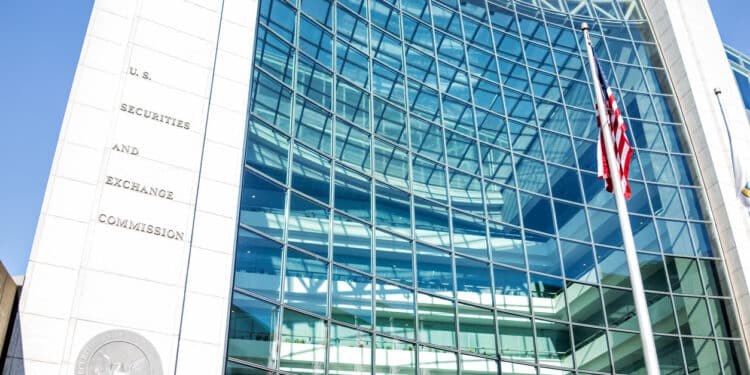On November 22, seven whistleblowers received $10.4 million in awards from the U.S. Securities and Exchange Commission (SEC) for information and assistance they provided in multiple covered actions.
In the first award order, one whistleblower received more than $6.2 million, while the other whistleblower received more than $1.3 million. The award order states that both whistleblowers provided “original information to the Commission,” but the first whistleblower, Claimant 1, provided original information that “led to the successful enforcement of the Covered Action and the Related Action” while the second whistleblower Claimant 2’s original information only “led to the successful enforcement of the Covered Action.”
The award order further elaborates that “Claimant 1’s information was more significant as Commission staff was able to corroborate all of Claimant1’s information and the majority of the relief ordered in the case was based on the conduct alleged by Claimant 1.” The order also notes that Claimant 1 “reported the concerns internally prior to reporting to the Commission” and also “reported to the Commission expeditiously while Claimant 2 waited a period of approximately 16 months before reporting to the Commission.”
The second award order details the award determination process for two whistleblowers. The Claims Review Staff (CRS) issued Preliminary Determinations, or recommendations for the size of the award the whistleblowers should receive. The first whistleblower, Claimant 1, “filed a timely response contesting the Preliminary Determinations, and Claimant 2 did not contest the Preliminary Determinations.” According to the award order, “the Commission anticipates the combined initial payment to Claimants will be approximately $2.4 million.”
Both whistleblowers in the case filed “timely whistleblower award claims.” Claimant 1 then “submitted a timely written response” contesting the Preliminary Determinations’ proposed award amount. Claimant 1 wanted a larger award and argued that “Claimant 2 does not appear to be eligible for an award on the grounds that Claimant 2 did not appear to provide information that led to a successful enforcement action pursuant to Exchange Act Rule 21F-4(c).” Claimant 1’s other argument is that if Claimant 2 is indeed eligible for an award, then Claimant 1 deserves a larger award because they “provided information to the Commission that caused Enforcement staff to open the investigation that led to the Covered Action and provided more critical information and assistance as compared to Claimant 2.”
The analysis section of the award order states that the record demonstrates that “Claimant 1’s information caused the staff to open the investigation that led to the Covered Action, and Claimant 1 provided significant assistance to Commission staff during the investigation by providing documents and making himself/herself available for interviews. Claimant 1 also provided additional assistance as the investigation progressed, including key pieces of evidence that allowed the staff to complete the investigation more quickly.” However, Claimant 1’s contentions to the Preliminary Determinations was denied, the award order stating that “the record demonstrates that Claimant 2 is eligible for an award, and a [redacted]% award to Claimant 1 is appropriate given the relative value of each of the Claimant’s contributions.”
Claimant 2 also “voluntarily provided original information to the Commission that led to the successful enforcement of the Covered Action.” Additionally, the award order explains that the award amount Claimant 2 will receive is “significantly lower” than that of Claimant 1 because “Claimant 2’s information was of substantially less value.”
The third award order announces that Claimant 1 will “jointly receive an aggregate whistleblower award of more than $240,000” and Claimant 2 will receive an award of approximately $195,000. Neither Claimant 1 nor Claimant 2 contested the CRS’ Preliminary Determinations. The SEC’s press release explains that in this case, there were three whistleblowers who will receive a total of $435,000.
“The record demonstrates that Claimant 1 and Claimant 2 voluntarily provided original information to the Commission and to the Other Agency and that Claimant 1’s and Claimant 2’s original information led to the successful enforcement of both the Covered Action and the Related Action.”
According to the award determination, “Claimant 1 alerted Commission staff to alleged fraudulent conduct that, in part, prompted staff to open an investigation. Claimant 1 met in person with Commission staff, as well as representatives from the Other Agency, and provided additional information following that meeting.”
“Claimant 2 also met with Commission staff, along with representatives from the Other Agency, and provided new, detailed and highly valuable information early in the investigation that was instrumental in assisting the staff to develop its theory of liability,” the award order states. The award determination finds that both whistleblowers will “receive an equal percentage in connection with the Covered Action because of their comparable contributions to the success of the Covered Action.” In regards to the Related Action, the Commission agreed with the CRS that Claimant 1 should receive a larger award because the information and assistance they provided “played a more significant role in the success of the Related Action as compared to the information and assistance provided by Claimant 2.”
Through the SEC Whistleblower Program, qualified whistleblowers are entitled to a monetary award of 10-30% of funds recovered by the government when the sanctions that the government recovers exceed $1 million. The SEC Whistleblower Program offers anti-retaliation protections to whistleblowers, and one such protection is confidentiality. Thus, the SEC does not disclose any identifying information about award recipients.
“Today’s whistleblowers provided information and assistance that proved critical to several enforcement actions,” said Creola Kelly, Chief of the SEC’s Office of the Whistleblower, in an SEC press release. “Their information allowed the agency to conserve significant resources and to bring each action more efficiently.”
Since the SEC issued its first award in 2012, the agency has issued “approximately $1.2 billion to 233 individuals.” Whistleblower awards are taken out of a Congressionally-established investor protection fund with money taken from “monetary sanctions paid to the SEC by securities law violators.”
Read the SEC press release here.




